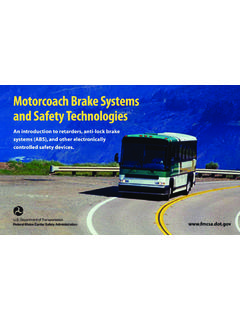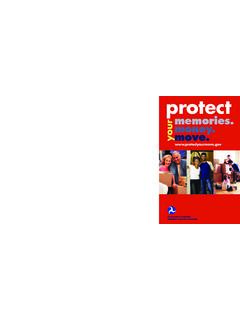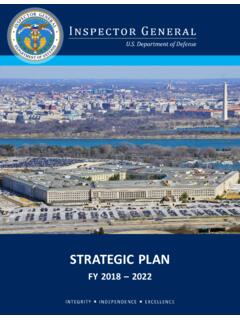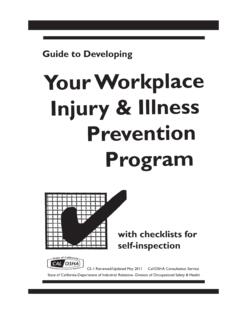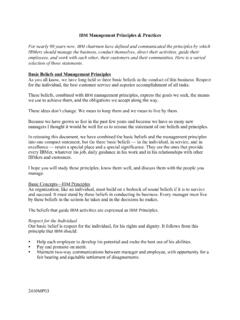Transcription of SMALL ENTITY COMPLIANCE GUIDE FOR BROKER …
1 SMALL ENTITY COMPLIANCE GUIDE FOR BROKER operations 49 CFR 371 and Other Applicable Regulations and Statutes January 31, 2012 2 NOTICE SMALL ENTITY COMPLIANCE Guides are prepared pursuant to Section 212 of the SMALL Business Regulatory Enforcement Fairness Act of 1996 ( SBREFA ), Pub. L. 104-121. The statements in this document are intended solely as guidance to aid in complying with the associated rule. The material contained in this document is neither mandatory nor regulatory in nature and does not constitute a regulation. It describes an acceptable means, but not the only means, to demonstrate COMPLIANCE with applicable regulations. The Federal Motor Carrier Safety Administration (FMCSA) will consider other methods of demonstrating COMPLIANCE that any person subject to the associated rule elects to present.
2 Terms such as must and will are used to indicate regulatory requirements when an acceptable method of COMPLIANCE is described in this document. In any civil or administrative action against a SMALL business for a violation of a rule, the content of its SMALL ENTITY COMPLIANCE GUIDE may serve as evidence to indicate the degree to which the proposed fines and penalties are considered reasonable and appropriate. This GUIDE may not apply in a particular situation based upon circumstances, and FMCSA retains the discretion to adopt approaches on a case-by-case basis that differ from this GUIDE where appropriate. Any decisions regarding a particular BROKER will be made based on the statute and regulations.
3 Therefore, interested parties are free to raise questions and objections about the substance of this GUIDE and the appropriateness of its application in a particular situation. The FMCSA will consider whether the recommendations or interpretations in the GUIDE are appropriate in that situation. The FMCSA may decide to revise this GUIDE without public notice to reflect changes in its approach to implementing a rule or to clarify and update text. To determine whether FMCSA has revised this GUIDE , contact the Commercial Enforcement Division at 202-366-3031. 3 CONTENTS Background 4 Purpose 4 Overview of BROKER operations Regulated by FMCSA 5 Interacting with Other Transportation operations 6 The Application Process to Obtain BROKER Authority 9 The FMCSA Review of BROKER Applications 10 BROKER Authority Application Process Illustrated 11 Brokering and Financial Responsibility 11 Requirements for All Brokers 13 Records to be Kept by Brokers, 49 CFR 13 Understanding and Avoiding Misrepresentation in COMPLIANCE with Regulation, 49 CFR 13 Accounting Requirements in COMPLIANCE with Regulation.
4 49 CFR 14 New Requirements for Household Goods Brokers 15 Exemption from the HHG BROKER Regulations 15 Doing Business Only with Motor Carriers Having Valid USDOT Numbers and Operating Authority, 49 CFR 17 Required Information in Your Advertisements and on Your Web site Homepage, 49 CFR 17 Information Household Goods Brokers Must Provide to All Potential Individual Shippers, 49 CFR 17 Providing Federal Consumer Protection Information to Potential Individual Shippers, 49 CFR 18 Providing Estimates to Individual Shippers, 49 CFR 18 Written Agreements with Motor Carriers before Providing Written Estimates, 49 19 Providing Individual Shippers with the Policies of Your Brokerage Concerning Cancellation, Deposits, and Refunds, 49 CFR 20 Consequences of Noncompliance with the Regulations, 49 CFR 20 Further Assistance 21 Appendix A Exempt Commodities 22 4 Background Brokers are unique to the transportation industry.
5 They do not operate trucks or employ drivers but play a role in the shipment of a variety of commodities. Brokers engaged in interstate commerce are regulated by FMCSA and are subject to several Federal statutes and regulations, in particular 49 CFR 371. Brokers are required to register with FMCSA, maintain process agents to accept legal service, and establish and maintain appropriate coverage for financial liability. Brokers also have administrative and financial recordkeeping requirements. Brokers are prohibited from misrepresenting themselves as motor carriers or as anything other than providers of brokerage services registered with FMCSA. In response to the Safe, Accountable, Flexible, Efficient Transportation Equity Act: A Legacy for Users (SAFETEA-LU) and a petition by the American Moving and Storage Association (AMSA), the FMCSA amended 371 and other regulations.
6 These a mendments specify requirements for brokers of household goods, addressing consumer protection, financial liability coverage, and business practices. Additionally, in the future FMCSA will assign U .S . Department of Transportation (USDOT) numbers, in addition to Motor Carrier (MC) numbers, to all brokers to better identify them. Purpose This GUIDE will help brokers of both property and household goods to comply with 371 and other applicable regulations and statutes. It will help established brokers already registered with FMCSA, and persons new to brokering understand recent changes in 371. It will also explain the process of applying for operating authority and an MC number, as well as the consequences of failing to comply with the regulations.
7 5 Overview of BROKER operations Regulated by FMCSA A BROKER regulated by the USDOT is defined at 49 13102(2): BROKER - The term BROKER means a person, other than a motor carrier or an employee or agent of a motor carrier, that as a principal or agent sells, offers for sale, negotiates for, or holds itself out by solicitation, advertisement, or otherwise as selling, providing, or arranging for, transportation by a motor carrier for compensation. A BROKER is further defined in the Federal regulation at 49 CFR (a): BROKER means a person who, for compensation, arranges, or offers to arrange, the transportation of property by an authorized motor carrier. Motor carriers, or persons who are employees or bona fide agents of carriers, are not brokers within the meaning of this section when they arrange or offer to arrange the transportation of shipments which they are authorized to transport and which they have accepted and legally bound themselves to transport.
8 As a transportation BROKER , you will be connecting shippers who need to move their commodities with carriers that can transport them. Connecting the shippers and the carriers is arranging transportation. If you are compensated for the service, then you are brokering. If you arrange the interstate transportation, by a motor carrier, of a commodity for a shipper, then you are regulated by FMCSA and are required by Federal statute, at 49 13904, to register with the USDOT. To be registered, FMCSA must grant you authority to operate as a BROKER . Registration also is referred to as authority , operating authority , or being authorized. All brokers regulated by FMCSA are required to use the services of authorized motor carriers.
9 An authorized motor carrier has been granted authority to operate interstate and is validly registered by FMCSA. There are two classifications of regulated brokers: property or freight brokers and household goods brokers. Each classification requires a specific registration or authority. A property BROKER may arrange transportation of a variety of regulated commodities other than household goods. Property brokers may arrange transportation for commodities such as automobiles, electronics, or machinery. A household goods BROKER can arrange transportation for shipments of household goods only. Household goods regulated by FMCSA are defined at 49 CFR as: Household Goods, as used in connection with transportation, means personal effects, property used, or to be used, in a dwelling, when part of the equipment of the dwelling.
10 Transportation of household goods must be arranged and paid for by the individual shipper or by another individual on behalf of the shipper. Household goods includes property moving from a factory or store if purchased with the intent to use in a dwelling, and transported at the request of the householder who also pays the transportation charges. Household goods brokers regulated by FMCSA are defined at 49 CFR as: 6 Household Goods BROKER means a person, other than a motor carrier or an employee or a bona fide agent of a motor carrier, that as a principal or agent sells, offers to sell, negotiates for, or holds itself out by solicitation, advertisement, or otherwise sells, provides, or arranges for, transportation of household goods by a motor carrier for compensation.





